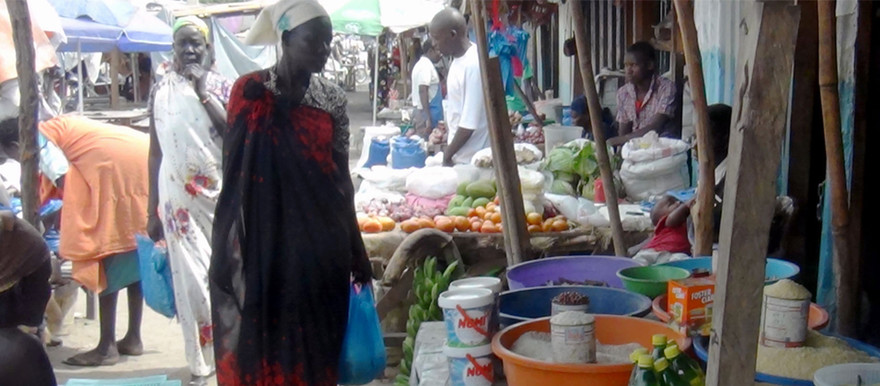Food prices in South Sudan’s Bor have hiked in recent months and citizens struggle to make ends meet. Buying basic food has become a luxury and traders say their businesses are on the verge of collapse.
“You buy something today at this price and if you come back tomorrow, you are surprised by the new price,” Mamer John from Bor told Radio Tamazuj.
“I bought these onions at SSP 400,” a woman who prefers not to be named said, adding that last year she bought the same quantity of onions for SSP 40.
Hamed Ibrahim, a trader in Bor who sources his goods from Juba, said wholesalers in the capital have recently decided to increase their prices, making it hard for him to restock supplies.
“I am a small businessman. I buy my things from big businessmen in Juba. I buy 50 kg of sugar in Juba for SSP 6,000, transport it for SSP 300 and retail it for SSP 6,500,” Ibrahim explained.
South Sudan’s economy depends on neighbouring countries as large amounts of consumable goods are imported from Uganda, Kenya and Sudan.
After independence imports reduced, as South Sudan’s agriculture production improved, but fighting which began in December 2013, reversed South Sudan’s tentative progress in agriculture production.
Civil war has caused a steep economic decline and the South Sudanese Pound (SSP) has lost in value against the US dollar. Foreign goods have become increasingly expensive over the past years, sparking widespread hardship and a looming famine.
Nadia Hamed, a mother of two and dealer in fruits imported from Uganda, expressed her concern about the relationship with her customers. “They (the customers) think the problem is with us (the traders),” she said, adding that the USD-SSP exchange rate is to blame for soaring prices.
Athieng Reng, a retailer at Marol Market, said: “Our customers are always hungry. We are urging the government to intervene quickly.”
South Sudan currently faces a food crisis that threatens millions of lives. The United Nations Food and Agriculture Organisation (FAO) has warned that 4.9 million people will be severely food insecure by July 2017.
Photo: Customers and traders at the market in Bor, February 18, 2017. (© Radio Tamazuj)




